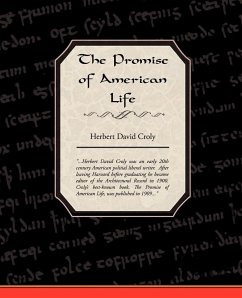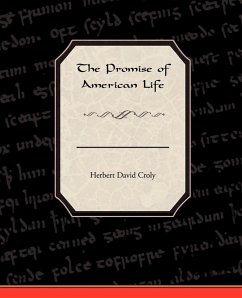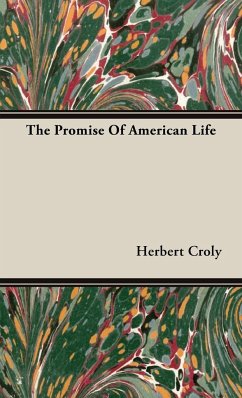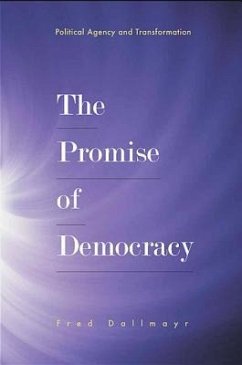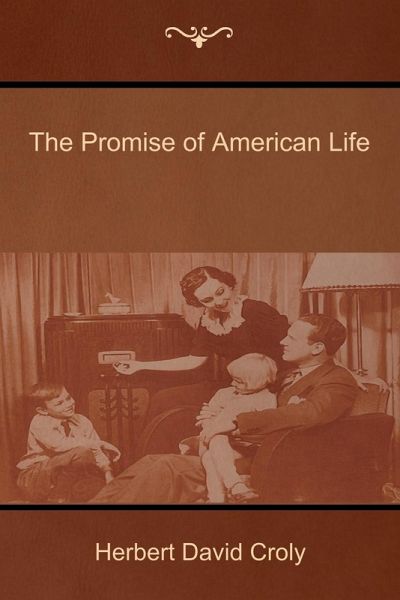
The Promise of American Life
Versandkostenfrei!
Versandfertig in 1-2 Wochen
20,99 €
inkl. MwSt.

PAYBACK Punkte
10 °P sammeln!
Herbert David Croly (January 23, 1869 - May 17, 1930) was an intellectual leader of the progressive movement as an editor, and political philosopher and a co-founder of the magazine The New Republic in early twentieth-century America. His political philosophy influenced many leading progressives including Theodore Roosevelt, as well as his close friends Judge Learned Hand and Supreme Court Justice Felix Frankfurter. His book, The Promise of American Life (1909), looked to the conservative spirit of effective government as espoused by Alexander Hamilton, combined with the democracy of Thomas Je...
Herbert David Croly (January 23, 1869 - May 17, 1930) was an intellectual leader of the progressive movement as an editor, and political philosopher and a co-founder of the magazine The New Republic in early twentieth-century America. His political philosophy influenced many leading progressives including Theodore Roosevelt, as well as his close friends Judge Learned Hand and Supreme Court Justice Felix Frankfurter. His book, The Promise of American Life (1909), looked to the conservative spirit of effective government as espoused by Alexander Hamilton, combined with the democracy of Thomas Jefferson. The book was one of the most influential books in American political history, shaping the ideas of many intellectuals and political leaders. It also influenced the later New Deal. Calling themselves "the new nationalists," Croly and Walter Weyl sought to remedy the relatively weak national institutions with a strong federal government. He actively promoted a strong army and navy and attacked pacifists who thought democracy at home and peace abroad was best served by keeping America weak. In The Promise of American Life, Herbert Croly set out his argument for a progressive-liberal government in twentieth-century America. He saw democracy as the defining American trait and described democracy not as a government devoted to equal rights but as one with the aim of "bestowing a share of the responsibility and the benefits, derived from political economic association, upon the whole community." He returned to Thomas Jefferson and Alexander Hamilton as representatives of the two main schools of American political thought. Croly famously admitted, "I shall not disguise the fact that on the whole my own preferences are on the side of Hamilton rather than of Jefferson." Despite his preference for Hamilton, Croly believed there were some good aspects about Jefferson's philosophy on government. He wrote, "Jefferson was filled with a sincere, indiscriminate, and unlimited faith in the American people." However, Croly viewed Jeffersonian democracy as "tantamount to extreme individualism," suitable only for pre-Civil War America when the ideal Americans were pioneers pursuing individual wealth. Croly's largest contribution to American political thought was to synthesize the two thinkers into one theory on government: Jefferson's strong democracy achieved through Hamilton's strong national government. (wikipedia.org)





